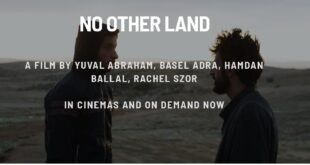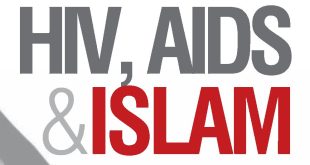By Oona Goodin-Smith, Oakland University

“Free chocolate!” echoed through the lobby of Oakland University’s South Foundation Hall late last week.
“We started with donuts, but so many people came that we ran out,” explained Muslim Student Association President Sumayya Master. “Sometimes people are shy, but we thought if there was food they’d come — and they did.”
The table’s handmade sign also resembled that of a bake sale’s, but it was actually to advertise the group’s “Ask a Muslim” event at the Rochester, Mich., university, where they provided information and hosted conversations about Islam with their fellow students.
“With everything going on in the world and the way Muslims are being portrayed in the media, especially, we feel as if it’s our job as Muslim-Americans to help people understand who we truly are and what our religion truly means,” said Master. “The word Islam stems from salaam which literally means peace. We’re here to spread peace and unity among the campus and help clear any misconceptions they have about Muslims or our religion.”
Over 120 students stopped by the booth for free food or to learn more about Islam. Among the top questions of the day: the meanings of jihad and haram.
“Jihad means struggle,” said Master. “It’s a struggle within yourself that you face, that we face, in our day-to-day lives to obtain something in the afterlife. It’s not about war, it’s not about killing, but that’s what it’s been portrayed as.”
“A lot of questions I get every day are about halal and haram,” said Syed Didar, another student at the event.
Halal is a term used to describe meat preparation as prescribed by Islamic law, while haram denotes anything forbidden by law.
“When you explain to people why we don’t eat haram food and take such care to kill an animal correctly, for example, they ask you why there are Muslims around the world killing other people and then you have to explain what they’re doing is wrong and how Muslims should live their day-to-day lives and fulfill internal struggle,” Didar said.
“It’s a long conversation, too, but it’s really rewarding when you get to change people’s perceptions of Muslims. You can show people what it’s really about, then they start to realize that Muslims aren’t bad like the media sometimes portrays them to be.”
According to a March 2015 poll from YouGov, 55% of Americans reported having a somewhat or very unfavorable opinions of Islam. Among Americans ages 18-29, 40% had unfavorable opinions toward the religion.
Republican Presidential front-runners Ted Cruz and Donald Trump have capitalized on this disfavor, with Trump suggesting all Muslims should temporarily be banned from entering the country, while Cruz proposed in late March that police should “patrol and secure” U.S. Muslim neighborhoods in the wake of the Brussels bombings.
“The fact that (Islamaphobia), fear of our religion, has been given an actual word is frightening,” said Master.

Acceptance is about visibility, Master said. “Thankfully in (southeastern Michigan) we have a lot of Muslims so people tend to understand us and have been able to understand who we are as people, but that’s not the case everywhere.”
“We’re all here to learn, so ask the questions you can,” said Master. “My advice for other Muslims is to be open to questions and my advice for non-Muslims is to ask away. It’s by having those conversations that we can create better understanding in this world.”
Oona Goodin-Smith is an Oakland University student and a USA TODAY College breaking news correspondent.
Source : http://college.usatoday.com
Post Disclaimer | Support Us
Support Us
The sailanmuslim.com web site entirely supported by individual donors and well wishers. If you regularly visit this site and wish to show your appreciation, or if you wish to see further development of sailanmuslim.com, please donate us
IMPORTANT : All content hosted on sailanmuslim.com is solely for non-commercial purposes and with the permission of original copyright holders. Any other use of the hosted content, such as for financial gain, requires express approval from the copyright owners.
 Sri lanka Muslims Web Portal Sri Lanka Muslims News Center
Sri lanka Muslims Web Portal Sri Lanka Muslims News Center
 Donate
Donate


